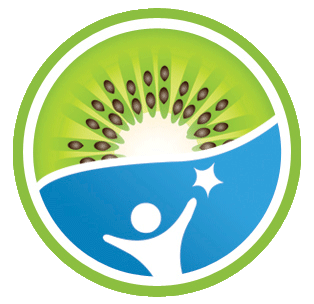As a pediatric dietitian, I work with some of the youngest clients in our private pediatric nutrition practice. There are many common themes that come up, as the families I work with try to nourish their children in the best ways possible and support their rapidly growing brains and bodies. I am struck in the past couple weeks, with the same question and concern that has come up many times. Should I keep breastfeeding after one year?
This question came from an exclusively pumping client, who wondered whether she should continue to pump breastmilk for her one year old. It also came from another client who’s doctor was questioning why she was still breastfeeding her 13 month old twins (who were former preemies) and a family member who was feeling done with breastfeeding and pumping for her 15 month old, but was feeling guilty about “quitting”.
Many well-meaning friends, relatives and pediatricians may be weighing in and clouding the decision for a breastfeeding mom about whether to continue breastfeeding after a year. The answer is that breastmilk definitely provides nutritional and immunological benefits after a year, however the decision on whether to continue a breastfeeding journey should be made by a mom, not her friends, relatives or pediatrician.
Breastfeeding moms looking for information on how long to breastfeed can quickly become inundated. Social media posts and groups can be incredibly helpful and supportive for breastfeeding moms. After all, the pediatrician’s office is not open at 3am when the baby is screaming and won’t latch, so these sites and groups can be extremely important! However, sometimes information can be opinion-based and judgement laden. The facts can be hard to discern from the rhetoric.
Many breastfeeding mothers are told by their pediatrician that it is “bad” to breastfeed beyond a year, because the baby needs food, not breastmilk. The two are not mutually exclusive. According to the American Academy of Pediatrics, “there is no upper limit to the duration of breastfeeding and no evidence of psychologic or developmental harm from breastfeeding into the third year of life or longer”.1 The American Academy of Family Physicians echoes the AAP’s guidelines. They indicate that, “breastfeeding should continue as long as mutually desired by mother and child”.2
Colleagues and clients also share with me their concerns about continuing breastfeeding or breastmilk feeding after a year because they have been told that their milk does not provide any benefit anymore. Breastmilk has known immunologic benefits beyond a year (if Mom gets sick, she will continue to makes antibodies that then get passed to her breastfeeding child), but also continues to have nutritional benefits. According to a study published in Pediatrics, breastmilk expressed by mothers who had been lactating for over one year, had higher fat and energy content compared with the milk expressed by mothers who had not been lactating as long.3 The study indicates that the fat and calories provided during prolonged lactation may be more significant than medical providers or even the researchers suspected.3
It is also worth mentioning the concept of weaning. Some women feel guilty about discontinuing breastfeeding or breastmilk feeding because the concept of weaning implies “taking something away” from the baby. It is important to note that “weaning” actually begins the day that the baby takes their first bite of table food, baby cereal or a baby food puree. So, truly all mothers start weaning from breastfeeding when complimentary foods start. This process of weaning continues until the child is no longer breastfeeding or breast milk feeding, whether this is at 6 months or 3 years and 6 months.
As a former breastfeeding and breastmilk feeding mom, I understand how difficult it is to integrate information from friends, family and medical providers, all well-meaning. As parents, we just want to do right by our children and we need the support of our community. Sometimes outside comments can get overwhelming. According to research, about 70% of women cease breastfeeding because it was the natural progression lead by either the baby or the mother, but over 11% reported they stopped breastfeeding due to a lack of information or a lack of support/opposition.4
I encourage all hard-working breastfeeding or breastmilk feeding moms to make this about a decision that is best for you and your baby. Approach this decision like so many other parenting decisions you will make down the road for you and your child: weigh the pros and cons, think about how this decision will impact your child in the short term and in the long term, and how it will impact your family as a whole. For those that are ready to stop breastfeeding, remember you are not “quitting”, so try to let go of the guilt. You are ready for the next steps and to embrace the next chapter in motherhood. For those that want to continue, nurse on – the science is behind you!
Amanda Gordon, RD, LDN, IBCLC pediatric dietitian at Feed to Succeed, LLC (2016-2022), a private pediatric nutrition practice. For more information, visit www.feedtosucceed.com
References:
- Breastfeeding and the Use of Human Milk. Pediatrics. 2012;129(3):e827 LP-e841. doi:10.1542/peds.2011-3552
- Breastfeeding, Family Physicians Supporting (Position Paper). https://www.aafp.org/about/policies/all/breastfeeding-support.html. Accessed June 14, 2020.
- Mandel D, Lubetzky R, Dollberg S, Barak S, Mimouni FB. Fat and Energy Contents of Expressed Human Breast Milk in Prolonged Lactation. Pediatrics. 2005;116(3):e432 LP-e435. doi:10.1542/peds.2005-0313
- Sugarman M, Kendall-Tackett KA. Weaning Ages in a Sample of American Women who Practice Extended Breastfeeding. Clin Pediatr (Phila). 1995;34(12):642-647.


